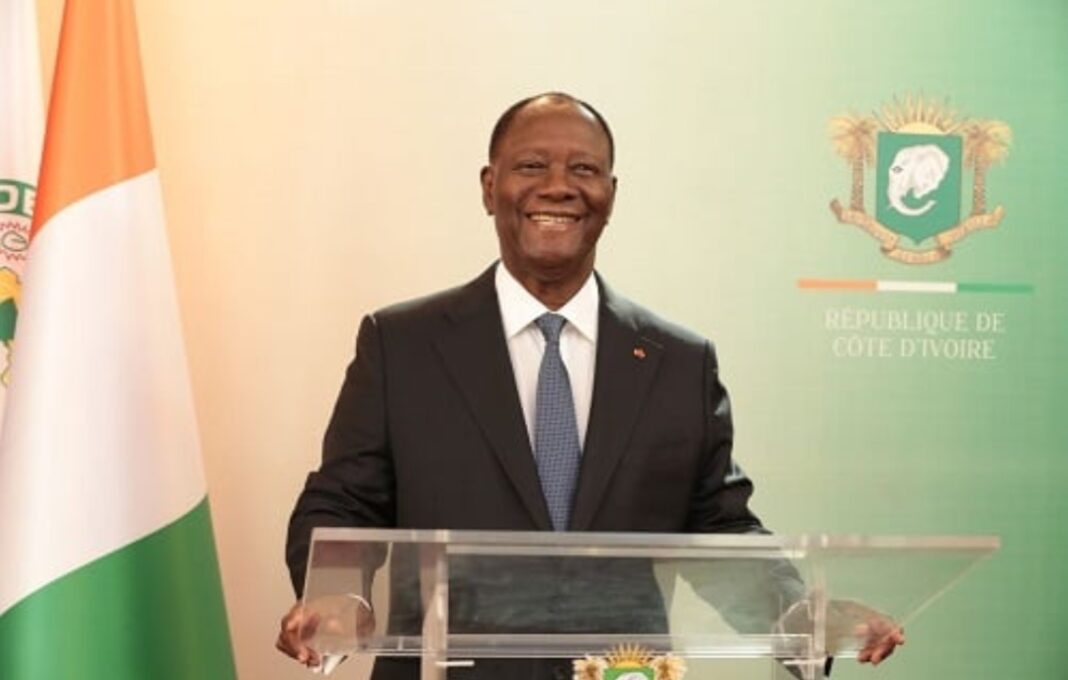Ivory Coast President Alassane Ouattara has won a fourth term in office after securing a landslide victory in Saturday’s presidential election, according to provisional results announced Monday by the Independent Electoral Commission.
The 83-year-old leader received 89.77 percent of the vote, or about 3.75 million ballots, extending his 14-year rule over the West African nation.
Ouattara faced four lesser-known challengers after major opposition figures, including former president Laurent Gbagbo and former prime minister Tidjane Thiam, were disqualified from contesting.
His opponents, former first lady Simone Gbagbo and ex-ministers Jean-Louis Billon, Ahoua Don Mello, and Henriette Lagou Adjoua, failed to gain significant support.
The outcome marks Ouattara’s widest margin of victory so far, surpassing his 2015 result when he won 83 percent of the vote. Lagou Adjoua, who also ran that year, slightly improved her tally to 1.15 percent.
Billon, a former trade minister, conceded defeat Sunday night and congratulated Ouattara in a message posted on social media. “My decision was informed by partial results already available to me,” he said. Billon ultimately finished second with 3 percent of the vote.
Ivory Coast, the world’s leading cocoa producer, has experienced major economic growth and infrastructure development during the past decade. Much of that progress has been credited to Ouattara’s administration, which took power after years of civil conflict and political instability.
However, Ouattara has faced criticism for limiting political freedoms and reshaping election laws to keep rivals off the ballot. In the 2020 election, the main opposition parties boycotted the vote, accusing him of running illegally after he amended the Constitution to allow a third term.
In this year’s race, both Gbagbo, 80, and Thiam, 63, were ruled ineligible to run by the electoral body, a move many analysts say reflects Ouattara’s firm control over the political system.
Ouattara’s victory came the same day Cameroon’s Paul Biya, 92, was declared winner of that country’s presidential election. Both outcomes highlight the continued dominance of long-serving, elderly leaders in a continent with one of the world’s youngest populations.
While Ivory Coast has so far avoided the youth-led protest movements spreading across parts of Africa, analysts warn that growing frustration could emerge if Ouattara fails to create room for new political leadership.
Despite improvements in living standards under his rule, critics say the president’s prolonged stay in power risks undermining democratic progress in a country still recovering from years of unrest.

